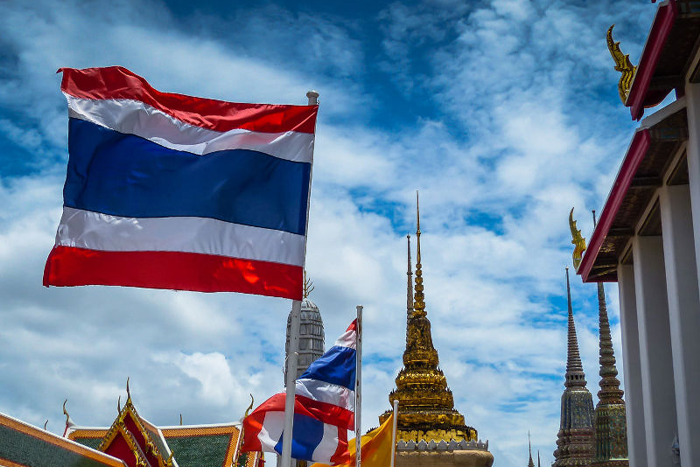September 2018 |
As a number of you have asked, I thought to share some observations about the new government in Malaysia, following their initial 100 days in power and the recent by-elections. My points are drawn from recent visits to KL as well as a briefing given by Malaysian Analyst Oh Ei Sun, who visited Singapore at our invitation. The SIIA has engaged different members of the current government in the past when they were in Opposition and will be again making efforts to reach out to them. As such, I ask that you might keep these points confidential.
1. Public Approval post-100 days: Post-election euphoria seems to be calming. The Merdeka centre polls show approval ratings for both Prime Minister Dr Mahathir Mohamad and the Pakatan Harapan (PH) government declining between May and August. Still, 55 percent believe that Malaysia is heading in the right direction, up from pre-election levels. Among Malay voters, PH won only 30 percent during the election, but post-election polls that 62 percent now express satisfaction with Dr Mahathir. Overall, while more realistic, perceptions of the new government remain positive. In the by-elections on 4th August and 8th September, PH won. However, the Parti Islam Se-Malaysia (PAS) candidate in one constituency (Seri Setia) doubled her party’s voteshare as compared to the General Election (4,563 to 9,698).
2. Autocracy?: Dr Mahathir has shown signs of reprising his old ruling style but public scrutiny and demands for transparency, as well as the strong position of other PH partners, have limited possible autocratic tendencies. On a number of issues, Dr Mahathir is keeping to reform promises. For example, the Malaysia Anti-Corruption Commission (MACC) has been moved from being directly under the Prime Minister’s Office to the Malaysian Parliament. The anti-fake news law that gave sweeping powers to the executive has also been repealed.
3. Limited Reforms: The government’s first 100 days raised questions about reform. Ethnic Malays remain a strong political force and have resisted policies that might challenge their bumiputera privileges. The appointment of non-Malays in positions of authority – especially Finance Minister Lim Guan Eng and Attorney General Tommy Thomas – have led to rumblings. This was made worse by Dr Mahathir saying that he was “shocked” when the Attorney General’s office dropped the corruption charges against Minister Lim, and the Penang High Court subsequently acquitted him.
4. New Patrons, New Favourites: Many senior management personnel within government-linked companies (GLCs) and government institutions have been changed by the new government. Some cases have involved those complicit in the 1Malaysia Development Berhad (1MDB) scandal or thought to be very close to the former leaders. For instance, MACC Chief Dzulkifli Ahmad and Election Commission Head Mohd Hashim Abdullah have left their posts. However, the changes have been much wider and a new patronage system may be emerging. A study by the University of Malaya found that many senior leaders of PH parties were appointed to the boards of GLCs in Selangor and Penang. Dr Mahathir has also voiced concerns about BN loyalists in the civil service who are opposing PH policies.
5. The Question of Succession: Perhaps the biggest speculation surrounds whether Dr Mahathir will cede the Prime Ministership to Parti Keadilan Rakyat (PKR) President Anwar Ibrahim despite the pre-election agreement that he would serve two years. Reports are spreading that Anwar’s heightened political activities following his release from prison have come too fast and upset Dr Mahathir. These frictions are mirrored in the election for PKR’s Deputy President, with balloting taking place between 22nd September and 28th October. The incumbent Azmin Ali has long standing ties to Anwar but was elevated to the post of Minister of Economic Affairs by Dr Mahathir. A contender for the post, Rafizi Ramli, has openly campaigned against Minister Azmin on the basis that the latter is being supported by Dr Mahathir.
6. Economic Uncertainty and the Importance of the 2019 Budget: PH’s work on resuscitating Malaysia’s economy is still ongoing. Observers such as the Asian Development Bank have applauded PH for reviewing investment projects for their long term contributions to the Malaysian economy. Yet, election promises on GST and petrol subsidies have led to concerns about Malaysia’s fiscal health. Dr Mahathir’s plans for a third national car project also shocked many who fear that this will require state subsidies. Looking forward, expect PH to outline a comprehensive economic plan for Malaysia, probably in the 2019 Budget to be announced on 2nd November.
PH’s electoral defeat of BN was historic and the coalition remains popular. However, reform and change has been slower than some hoped. Political succession and the overarching financial and economic plan moreover remain question marks for the present.
I hope this is of interest to you. I would be happy to hear your views.
Yours sincerely,
Simon Tay
Chairman
![[Premium] Chairman’s Note (05/2018) – Malaysia’s New Government After 100 Days](https://siiaonline.org/wp-content/uploads/2018/09/city-1283140__480.jpg)



